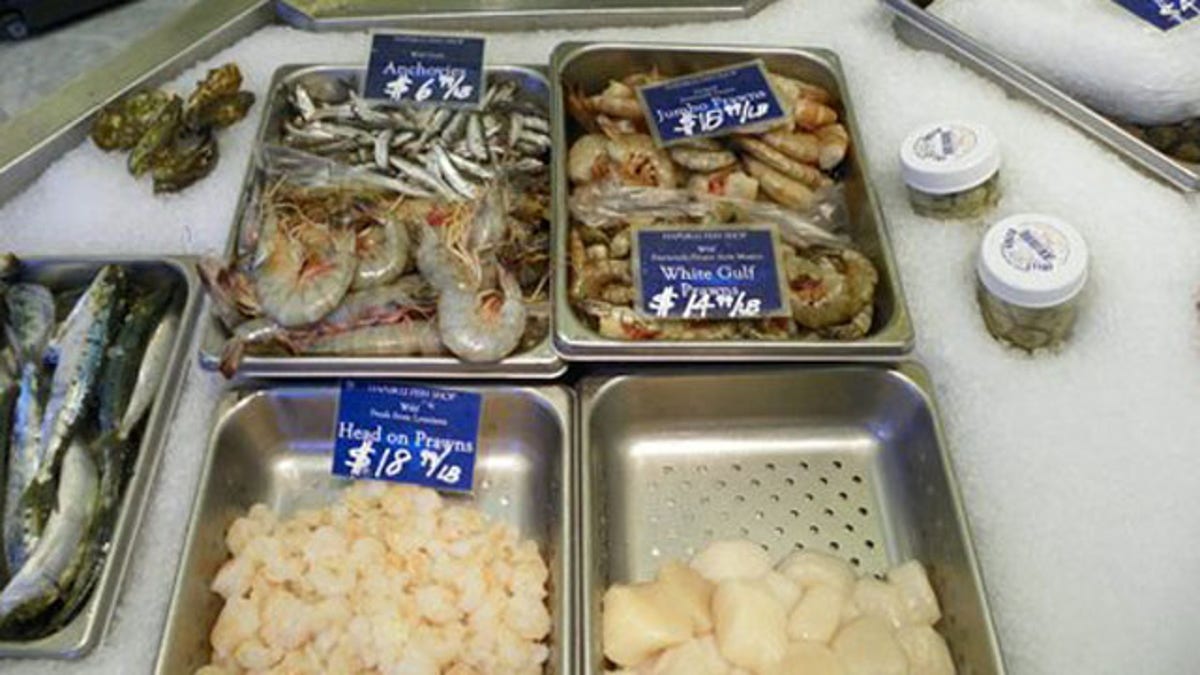
Aug.17, 2010: Seafood for sale at the Hapuku Fish Shop in Oakland, Calif (AP).
WASHINGTON – The Food and Drug Administration (FDA) is doing a poor job ensuring that imported seafood does not pose health risks to Americans, failing to properly assess foreign producers and inspect the products they ship to the U.S., according to a congressional research report released Monday.
About half of the seafood the U.S. imports comes from foreign fish farms, and the fish grown there are prone to bacterial infections that are often treated with antibiotics and other drugs not approved in the U.S., the Government Accountability Office, or GAO, said in the report.
"The residues of some drugs can cause cancer and antibiotic resistance," the GAO said.
The U.S. imported about $14.7 billion of seafood last year, up from $13.1 billion in 2009, according to data maintained by the U.S. Department of Agriculture.
The FDA's efforts to evaluate seafood imports generally consist of the agency reviewing records of importers and processors in the U.S.
"The [FDA] inspectors generally do not visit the farms to evaluate drug use or the capabilities, competence, and quality control of laboratories that analyze the seafood," according to the report.
The FDA and the Commerce Department's National Marine Fisheries Service reached an agreement in 2009 to improve how imported seafood is monitored, but the agencies have only made "limited progress," the GAO concluded.
The FDA, in 2009, tested only about 0.1 percent of all the seafood imported in the US for drug residues, and the agency relies on just seven of its 13 laboratories to do the testing, the GAO said.
